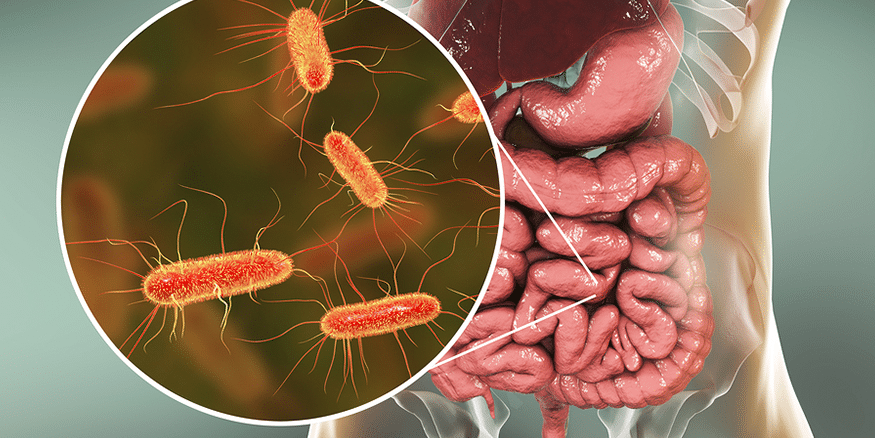
If any of the post-glucose samples contain 20 parts per million (ppm) hydrogen and methane gas above the baseline sample, you have bacterial overgrowth of the small intestine. We compare the hydrogen and methane levels in the 30, 60 and 90 minute breath samples to the baseline (0 minute) sample. We measure hydrogen, methane and carbon dioxide gas in all four tubes by gas chromatography. The Gut-chek for SIBO consists of four breath collections. SIBO, or Small Intestinal Bacterial Overgrowth, is caused when bacteria that are normally present in the large intestine start to grow in the small. The carbon dioxide gas level allows us to check if (a) the breath sample is valid and (b) normalizes the results in case the breath collection is not perfect. The Gut-chek for small intestinal bacterial overgrowth (SIBO) uses glucose as a detection sugar to see if hydrogen and methane gas forms in the small intestine. We measure hydrogen, methane and carbon dioxide gas in all four tubes by gas chromatography. SIBO, or small intestinal bacterial overgrowth is a condition in which bacteria that lives in the large colon moves into the small colon causing symptoms of. The Gut-chek for SIBO consists of four breath collections. The Gut-chek for small intestinal bacterial overgrowth (SIBO) uses glucose as a detection sugar to see if hydrogen and methane gas forms in the small intestine.

When higher levels of bacteria come into the small intestine, they can cause many abdominal symptoms.īacteria exposed to sugar forms hydrogen and methane gas. Certain acquired conditions may allow excess levels of bacteria to live in the small intestine. Unlike the colon (or large bowel), which is rich with bacteria, the small bowel usually has fewer than 100,000 organisms per millilitre. Small intestinal bacterial overgrowth (SIBO) is a disorder of excessive bacterial growth in the small intestine, and is often related to chronic diseases. Small levels of bacteria are normally present in the small intestine. Small intestinal bacterial overgrowth ( SIBO ), also termed bacterial overgrowth, or small bowel bacterial overgrowth syndrome ( SBBOS ), is a disorder of excessive bacterial growth in the small intestine.

Uncover the cause of your chronic digestive pain from the convenience of your home. Bacterial overgrowth is a condition of the small intestine resulting in increased numbers of bowel bacteria.


 0 kommentar(er)
0 kommentar(er)
